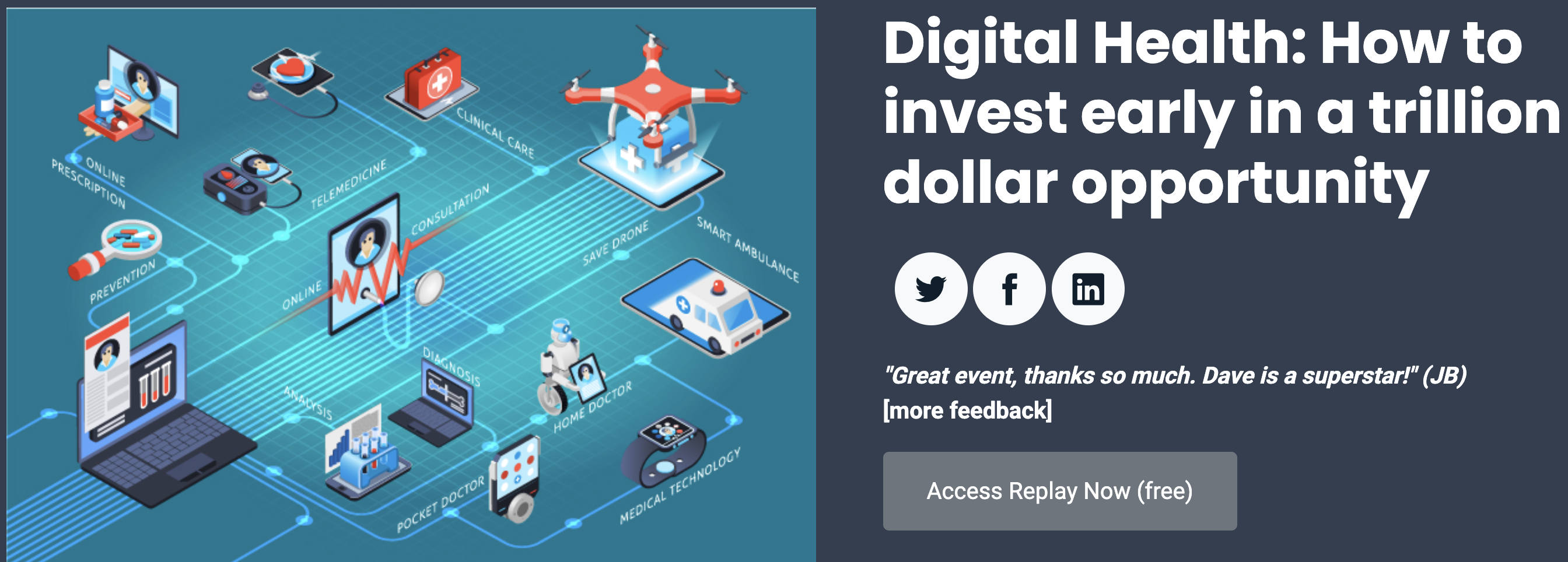|

B. G., Opalesque Geneva for New Managers: The value of private equity and venture capital deals in healthcare technology climbed about 50% year over year to $15bn in 2024. Dave Vreeland, head of Nashville, TN-based early-stage digital health investment firm Caduceus Capital Partners, is part of this trend, with a thesis that the U.S. healthcare system is on the brink of collapse but also of rebirth, thanks to technology and innovation.
The underlying thesis behind his two early-stage digital health funds is macroeconomic, macro demographic, and geopolitical, he explained during a recent Opalesque video interview.
Part 1 of the article can be found here.
More on defence, less on healthcare
The country is experiencing geopolitical pressures. With several cold and hot wars happening in the world, the US will need to dramatically increase defence spending soon.
In a white paper published in September last year, Vreeland wrote it is highly likely that one of the current wars will pull the U.S. into a regional conflict or a third world war, as suggested by some geopolitical experts. Such scenarios would require trillions of dollars, and a need to increase spending on military and defence from 13% (2023) of the federal budget to close to 30%. With high interest rates, a spiralling deficit and low tax revenues, the government will look for ways to make substantial cuts, and it will very likely be cuts to Medicare/Medicaid spending.
This scenario could force the closure of up to a third of the nation's 6000 hospitals, pushing healthcare spending back on individuals and families who are already at a breaking point. Vreeland believes that America is getting into a situation where they won't have a choice but to move into a period of dramatic austerity.
This situation highlights the urgent need for systemic reform in healthcare. Vreeland suggests it be imperative we embrace technological innovation and private market-driven solutions.
Telemedicine exemplifies the potential of technological innovation. Today we see the emergence of many other "disruptors," promising similar transformative effects on the healthcare landscape.
Health care system will change more in the next decade than in the last 100 years
Initial healthcare digitization has paved the way for more sophisticated technologies including GenAI and Telemedicine. The evolution of healthcare technology reflects a broader trend toward deeper reliance on digital tools in healthcare delivery.
The changes in health care will be the result of unintended consequences of major federal programs, he says. For example, the shopping malls, along with credit cards and the suburbs, were unintended consequences of the highway programs that came about as Eisenhower returned from Europe after World War II and recognized that the Autobahn was an enormously effective way of moving material.
The way forward
The pending crisis will leave the country with challenges that the government will not be able to address. The market will inevitably step in to address the demand and bring meaningful disruption.
According to Vreeland, we are going to see a lot of impact from artificial intelligence and other advanced technologies like wireless electricity, robotics and automation in the next decade or so.
There will see major changes in who delivers care. "There are not enough people are going into medicine, but in the world of primary care, we're learning that you don't have to have a physician do a lot of the directing of a person's general primary care. We'll see more and more pharmacists, social workers, certified nurse practitioners, nurses, other types of clinical resources and coordination resources handle the initial intake of folks. Because we're just going to need more people to handle those kinds of things. And at a point in time, we'll begin to see artificial intelligence handle it as well."
Moreover, where and how care is delivered is going to change dramatically. Caduceus is investing in a number of businesses that are betting on the idea "that if you're delivering care in a place that means somebody has to leave his or her home to go and get that care, that's probably a bad start." The recent bets placed by the likes of Amazon, J.P. Morgan, Berkshire Hathaway and Walmart in many cases did not work because they did not change the delivery model. They simply tried to lower the cost, which is difficult to do in healthcare. He believes we will see more healthcare delivered at home.
"And with any luck, we'll have a couple of big technology breakthroughs that will address the big three that really caused the most healthcare costs around the world: obesity, heart disease, and cancer."
Since its founding in 2020, Caduceus Capital Partners has established itself as a premier franchise fund in early-stage digital health venture capital. With a focused investment philosophy centred on digital health innovation, the firm identifies and supports transformative startups at the pre-seed and seed stages, delivering strong returns across multiple fund cycles.
Some of Caduceus' investments in Fund I include EvidenceCare, a U.S. firm which offers an EHR-integrated platform that optimizes clinical workflows, Reperio, an Irish firm that provides at-home health screening kit, ProRank, a talent acquisition and engagement platform, and fitness app Plankk.
You can watch the whole interview here:
www.opalesque.com/webinar/#pastwebinar

Icon by Flaticon
|